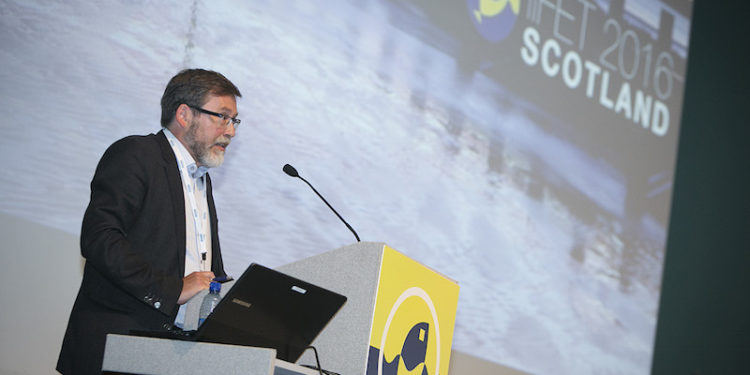Norway has had a 30-year experience of outlawed discards since the first cod discard ban was put into place in 1987 and Vidar Landmark, Director General at the Department of Fisheries and Aquaculture said that the first thing to bear in mind is that a discard ban does not end discards.
‘A discard ban doesn’t get rid of discards. People still drive through red lights and exceed speed limits. But the lesson is that we have to help. Norway has 30 years of a discard ban, and we are still not there yet,’ he said, speaking at last week’s IIFET conference in Aberdeen.
‘We need to talk more about the gains to be made from reducing discards,and how this can be translated into money,” he said. ‘Everyone stands to gain from reducing discards, with more money earned and less effort. But we have to recognise that one size does not fit all. It’s important to have quotas that actually fit the fisheries, which underlines the need for flexible quota systems,’ he said.
Norway also employs incentive measures that are designed to encourage fishermen to land fish that is over-quota, but with the profit element removed. The fish is sold, but 80% of the proceeds are confiscated, leaving 20% that covers the costs of landing and handling. This is to ensure that the fisherman is not out of pocket, but the measure designed to eliminate an incentive to overfish while also providing an encouragement not to discard the fish.
‘The policy is that if it comes out of the ocean, it should be utilised, but not at a profit,’ Vidar Landmark said. ‘The policy is to provide help and discouragement in catching fish that is over-quota, and not to provide incentives.’
‘There should not be discards of fish. But this takes time to learn, for there to be an acceptance of this,’ he said.
‘What has not been talked about enough is the advantages of reducing discards. From the point of view of a fisheries manager, this is unwanted fish mortality,’ he said, adding that fish mortality is the aim, but it has to be the right fish and non-target species become unwanted mortality.
‘There’s also an ethical dimension to this – that we shouldn’t be wasting food.’ he said.
‘The Barents Sea is now at an almost all-time high, and the discard policy has undoubtedly played a part in this, along with the use of grids, closures, move-along requirements if there are unacceptably high levels of by-catch or undersized fish, and we must not underestimate all these measures,’ he said.









